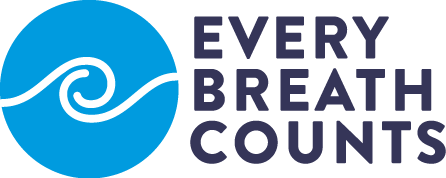Every Breath Counts Coalition
An unprecedented number of organizations have joined forces in the Every Breath Counts Coalition – the first public-private partnership to support governments in low- and middle-income countries (LMICs) to reduce deaths from respiratory infections by 2030. Pneumonia is the leading infectious killer of children and adults, responsible for an estimated 2,500,000 deaths in 2019, including 672,000 deaths among children under five, according to the Global Burden of Disease (GBD). This does not include the 3.5 million deaths from COVID-19 that occurred in 2021. Prior to COVID-19, pneumonia deaths were declining, but at a much slower rate than other infectious diseases. Between 2000 and 2019, pneumonia deaths fell by just 14% compared to 86% for measles, 45% for HIV/AIDS, 37% for diarrhea and malaria, and 31% for tuberculosis deaths, according to the GBD.
Now with the pandemic disrupting routine health services, especially for children, many countries will struggle to drive child pneumonia deaths to below three per 1,000 live births, which is the rate required to achieve Sustainable Development Goal (SDG) 3.2. And with COVID-19 increasing respiratory infection deaths among adults, many countries will also struggle to achieve many of the other health SDGs. Children in LMICs are especially vulnerable to death from pneumonia due to the combination of child malnutrition, air pollution, low birth weight, low vaccine coverage, limited female literacy, and poor access to health services. Adults, especially older adults, are also vulnerable to pneumonia when they are exposed to air pollution, tobacco smoking, and low temperatures. Co-morbidities have also placed adults at an increased risk of death from pneumonia caused by COVID-19.
Focused national and international efforts to identify and close the gaps in pneumonia prevention, diagnosis, and treatment for vulnerable populations could prevent most of the pneumonia deaths that are occurring each year. And when COVID-19 vaccines are at full coverage, deaths from SARS-CoV-2 should also fall dramatically. To help governments in LMICs experiencing high burdens of pneumonia deaths among both children and adults, including from COVID-19, the Every Breath Counts Coalition is mobilizing members and supporters to help close the most critical gaps in pneumonia prevention, diagnosis, and treatment.
In most of these LMICs expanding coverage of the pneumonia-fighting vaccines (pertussis, Hib, PCV, measles, and now COVID-19) is a top priority because current coverage rates are often low. Improving access to proper diagnosis and treatment services with better tools like pulse oximetry and increased access to recommended antibiotics, oxygen, and therapeutic foods is also key. Working more directly with mothers and families to improve child nutrition, air quality, mother literacy and agency, and careseeking for sick children will also boost progress across all countries.
And now with COVID-19 increasing pneumonia deaths among adults and also contributing to increases in child pneumonia deaths from other causes due to disruptions in health services, the Every Breath Counts Coalition is further focusing its efforts on “double-burden” countries where large populations of both children and adults are dying from pneumonia and where COVID-19 deaths are high.
The Every Breath Counts Coalition is in support of the United Nations (UN) Sustainable Development Goals, especially SDG 3.2, the Global Strategy for Women’s, Children’s and Adolescents’ Health, and the UN Secretary-General’s Every Woman, Every Child movement. For more information, visit StopPneumonia.org and follow @Stop_Pneumonia on X and Youtube.
Updated January 2024



